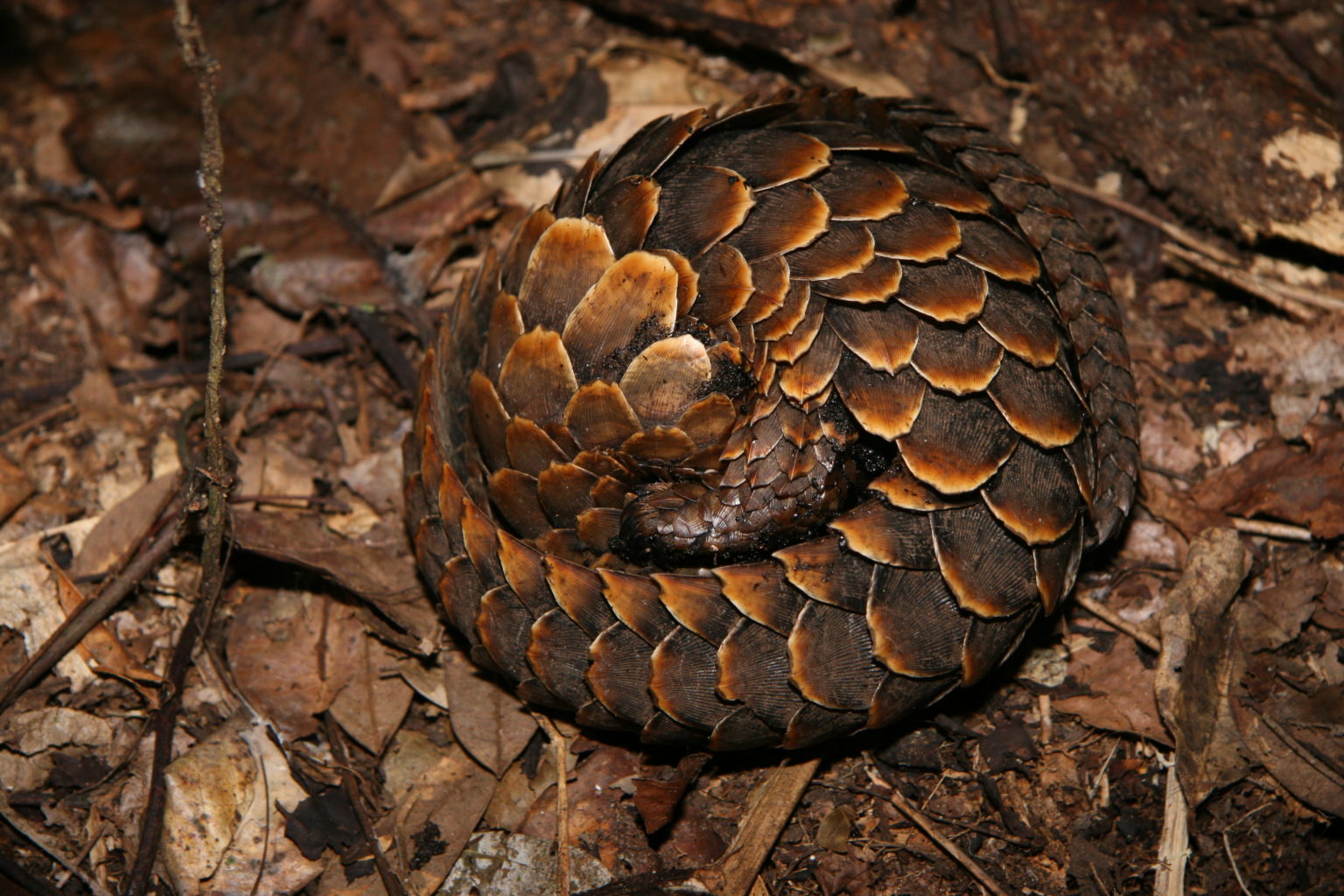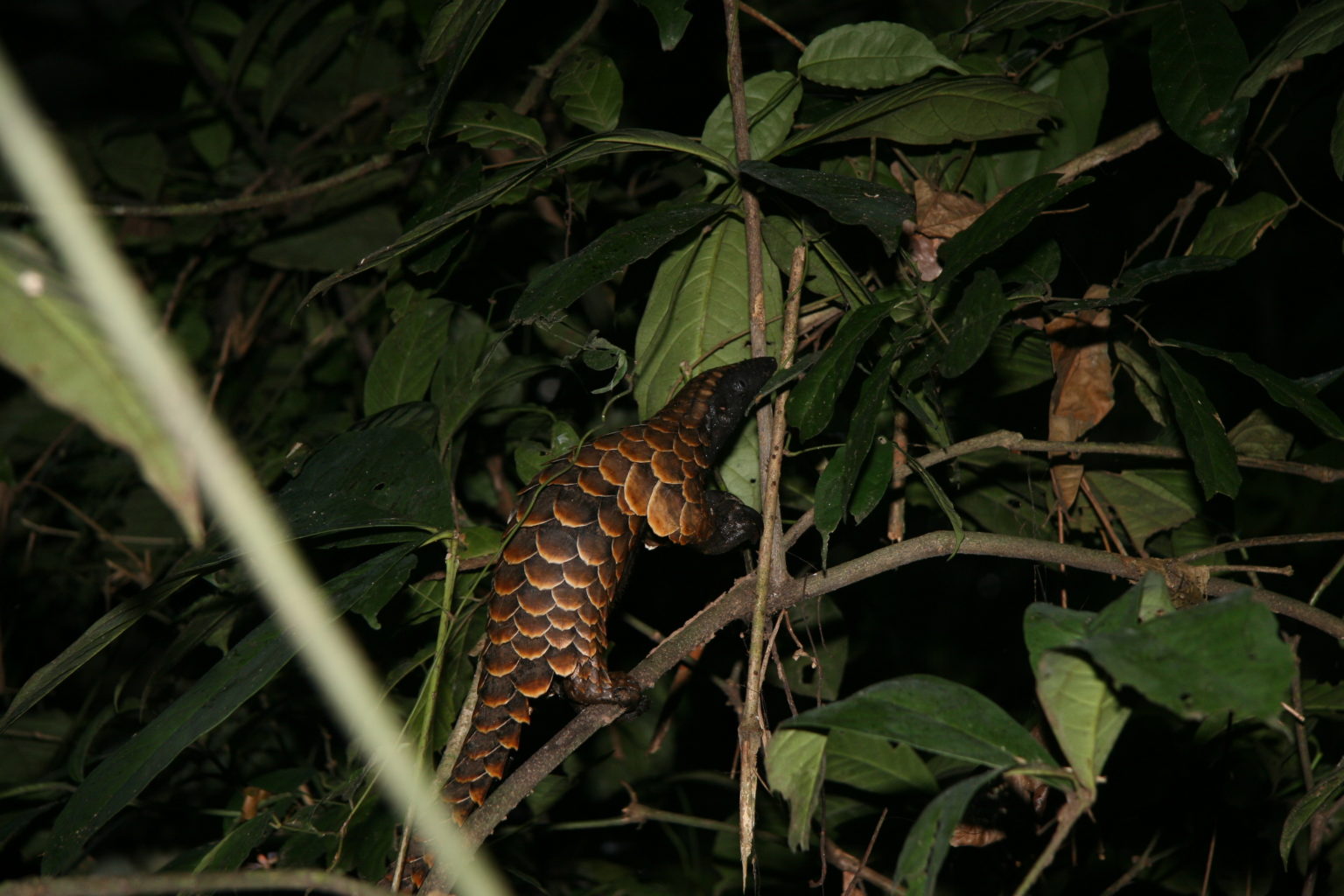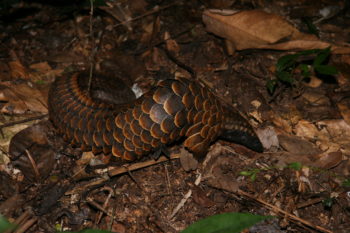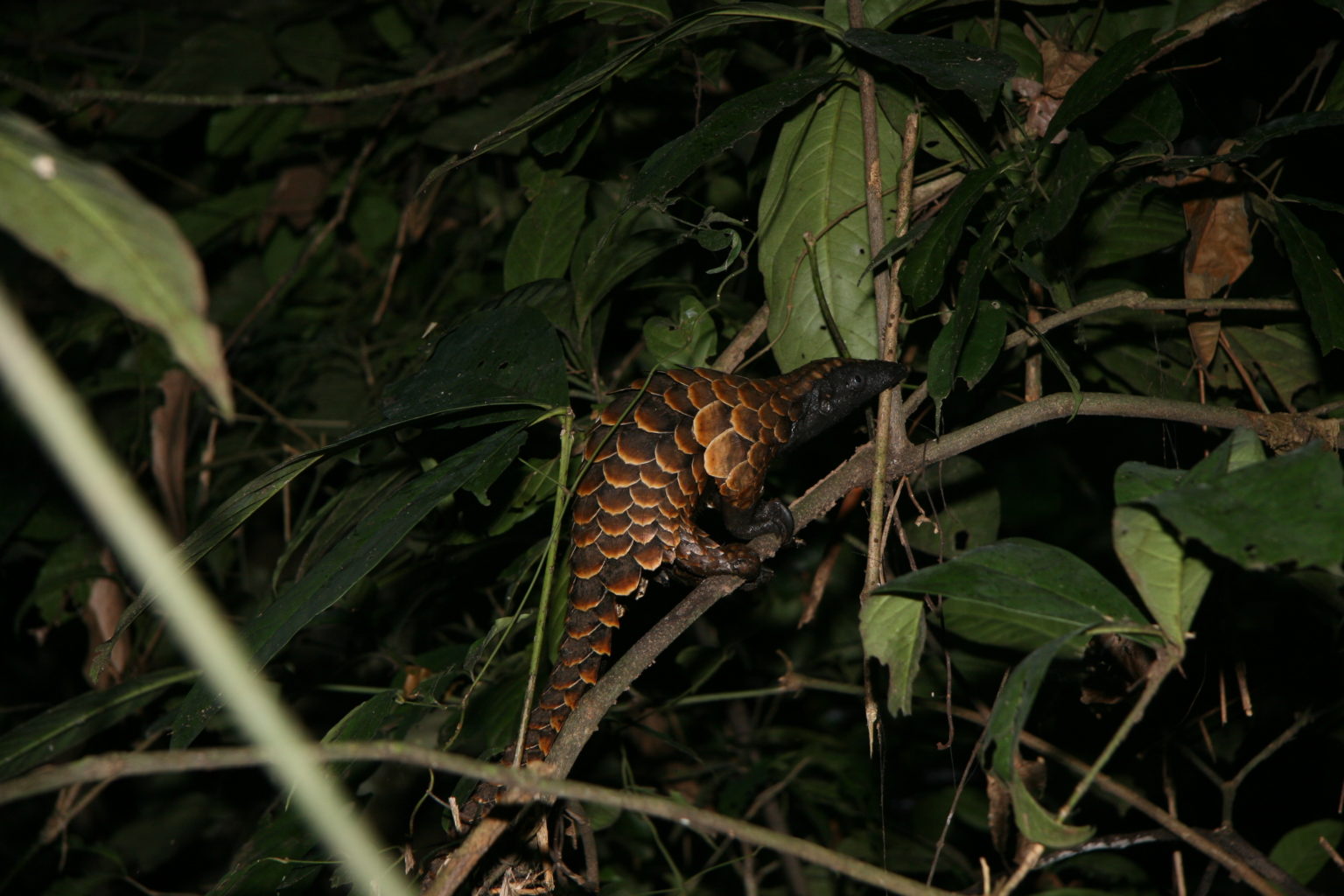Distribution
Cameroon; Central African Republic; Congo; Côte d’Ivoire; The Democratic Republic of the Congo; Equatorial Guinea; Gabon; Ghana; Guinea; Liberia; Nigeria; Sierra Leone.
Reproduction
Breeding in the black-bellied pangolin is understood to be almost continuous, with young born after a gestation period of approximately 140 days.
Distinguishing characteristics
The black-bellied pangolin’s tail can be twice the length of its body, hence the species’ name. Certain physical characteristics separate the arboreal black-bellied pangolin and white-bellied pangolin from Africa’s ground pangolins, including smaller size, very small first forelimb claws, larger eyes, irregular arrangement of scales, the presence of tails pads used for climbing, a long prehensile tail, and the presence of hair on the lower sections of forelimbs as opposed to scales. Both of the tree-dwelling species have long tails, however the white-bellied pangolin’s is notably shorter
Facts
The black-bellied pangolin has 75 vertebrae in total, with 47 comprising the tail.






